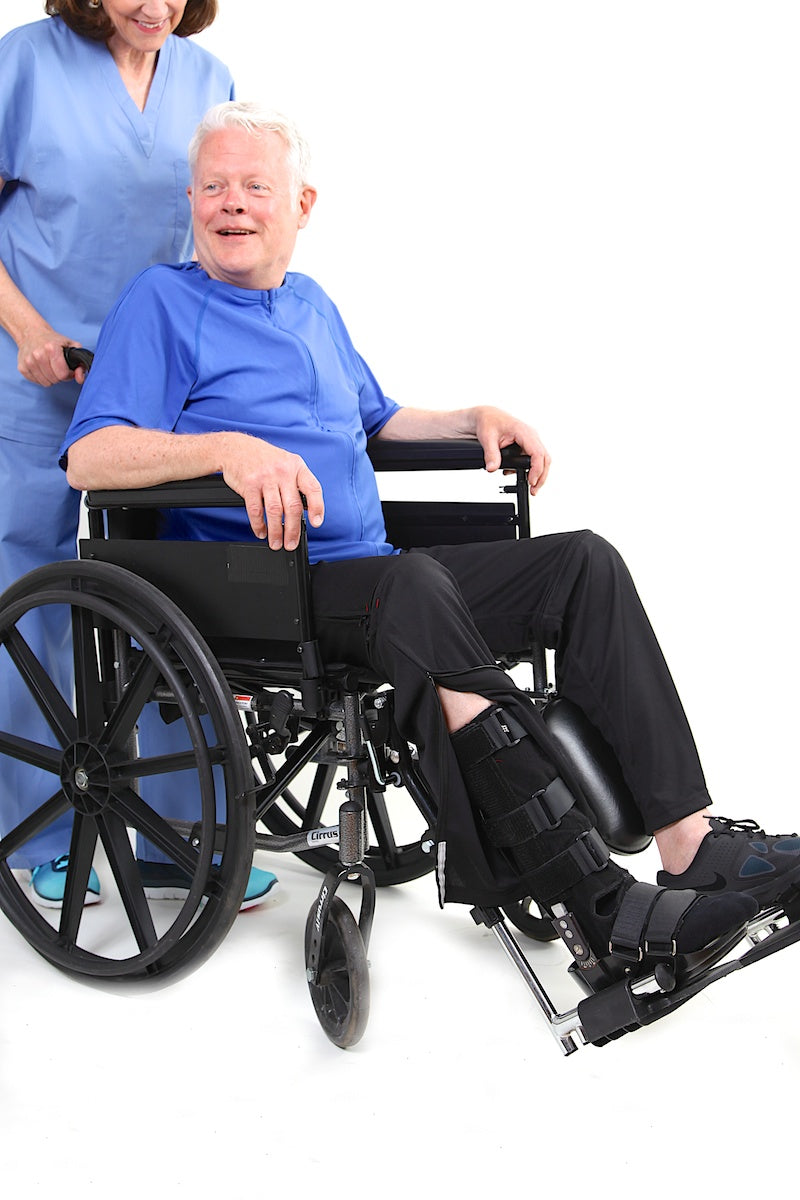Hip replacement surgery, also known as hip arthroplasty, is a procedure in which a damaged or worn-out hip joint is replaced with an artificial joint. The surgery is usually recommended for people who have severe hip pain and disability due to osteoarthritis or other conditions that have damaged the joint.
Before the surgery, you will meet with your surgeon to discuss the details of the procedure and to review your medical history. You may also meet with other members of your healthcare team, such as a physical therapist, to discuss your post-surgery rehabilitation plan. And don’t forget, you’ll need to wear pants that are easy to get on and off. Reboundwear pants are specifically designed for post surgery.
Hip replacement surgery is typically performed under general anesthesia, so you will be asleep during the procedure. The surgery itself typically takes about two hours. During the surgery, the damaged joint is removed and replaced with an artificial joint, which is made of metal or plastic.
After the surgery, you will be taken to the recovery room to be monitored until you are awake and alert. You may need to stay in the hospital for a day or a week, depending on the specifics of your surgery and your recovery. Some procedures are ambulatory, meaning you will leave the hospital on the same day as your surgery but if it is at all possible to stay overnight we would suggest that.
The recovery process after hip replacement surgery can take a few weeks to several months. During this time, you will need to follow your doctor's recommendations for rehabilitation and physical therapy. At first, icing the wound site consistently can be the best way to reduce swelling and pain. A great hack we received from an orthopedic nurse is to use a bag of frozen lima beans for icing- she said that they stay frozen longer than peas.. There are also machines that combine ice and compression but they are pricey. Ask your doctor what they recommend. Another important hack is to stay hydrated and eat several small meals and snacks to counter side effects of medications. You should begin PT only once your surgeon says you are ready to do so. Your physical therapy may include exercises to improve your strength, flexibility, and mobility, as well as guidance on how to perform activities of daily living safely and comfortably.
To prepare for hip replacement surgery, you may need to stop taking certain medications and make arrangements for transportation and post-surgery care. Typically you will be offered a pre surgery class that will also help in getting organized for recovery. Don’t be shy about discussing any questions or concerns you have about the process.
The idea of hip surgery, like any surgery, may seem scary or overwhelming. But remember, that nowadays, the most common orthopedic surgeries are practically routine and although each patient’s experience is different depending on their health and fitness, typical outcomes result in reduced to no pain and much improved mobility that will allow you to get back to your daily routine.





Leave a comment
All comments are moderated before being published.
This site is protected by hCaptcha and the hCaptcha Privacy Policy and Terms of Service apply.